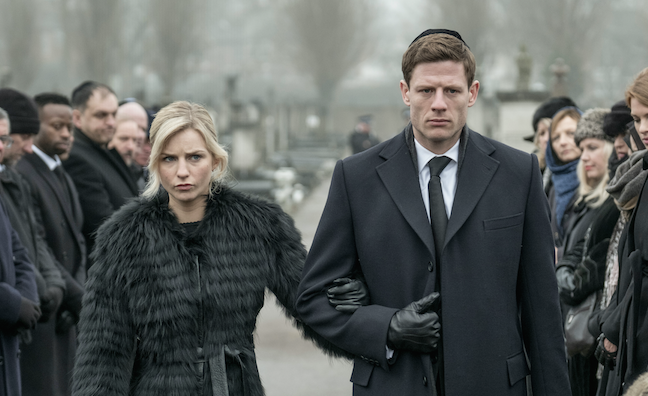For eight weeks in January, McMafia stirred the nation from its New Year slumber with its hard-hitting portrayal of organised crime.
Starring James Norton, David Strathairn and Juliet Rylance, it began airing on AMC in America this week, making the move from BBC One. To mark the occasion, the latest edition of Music Week, out now, sees composers Franz Kirmann and Tom Hodge reveal all about their original score for the show.
The duo have released three albums on Denovali Records as Piano Interrupted, but their McMafia score is released through Decca’s Mercury KX imprint. Here, they discuss their most high profile collaboration to date.
How did you come to work on McMafia?
Franz Kirmann: I had met Paul Ritchie, the producer, though a friend of mine and we just connected as people and on music, we have similar musical taste and we are both big film buffs!
Tom Hodge: As is so often the way, every element has to happen just at the right time. Franz had the ultimate door opener, but I had recently changed agent and publisher and the infrastructure was very much in place to take on much bigger work. So the McMafia producers were able to feel more confident that we would be able to deliver an episode every week!
How did you put the music together?
FK: We read the script first, then met with James Watkins the director and Hossein Amini, who wrote the show with him. After that we spent a lot of time with the editors watching scenes and discussing the characters’ journeys. We started putting ideas together from those initials meetings before actually scoring to picture.
TH: Those couple of months where we had dialogue with the editors were very important. Some basic themes appeared then and broadly stuck. It gave us a starting point and a really good musical point of contact with James Watkins, when the pressure ramped up as the deadlines started approaching. I was very keen to get the London Contemporary Orchestra involved at an early stage. Scoring to picture can often be a matter of mocking up demos which then simply re-recording them live. I was determined for the workflow not to be like this - we did an experimental recording session very early and built these recordings into the early demos. We were then immediately in an inspiring cycle of manipulating live recorded material from the very beginning, which in turn continued to inform the writing throughout the series.
FK: Working with the LCO early on in this experimental way gave the score a very specific sound.
Some of it is quite challenging for a TV series, I think!
Tom Hodge
Why do you feel the music suits the series?
FK: I think it works because it is quite subtle and non-intrusive. We didn’t want to be heavy-handed, the story and characters are complex with lots of layers so we wanted to reflect that. Then the title score needed to be big because you’re dealing with global crime here, it needed to match the scale, so it stands out.
TH: We focused very much on the internal narrative of Alex Godman and the other lead characters, not trying to reflect the whirlwind of glamorous locations appearing every episode. This hopefully helps to pull the narrative along and really reflect how Alex’s actions echo through this world of global crime.
FK: We constantly worked on two layers. Beauty and the beast in a way: lush strings and piano arrangements, reflecting that surface glamour life, that we would then subvert [them] to reflect the internal narrative of the characters.
What do you like most about the score, looking back on it?
FK: I’m very happy that they trusted us and let us do our thing. I think we just really got on and understood each other. I’m proud of the score because it has a strong identity, it’s kind of neo-classical and minimalist but it’s also very ambient and sometimes violent and industrial, it’s got personality basically!
TH: I feel like it was pushing at the boundaries at what is 'acceptable’ string writing in terms of tuning and articulation. Some of it is quite challenging for a TV series, I think! It is of course a significant moment for any composer doing such a high profile series for the first time and you want to somehow sum up your sound as best you can. Listening now, I can hear so many different elements from all the different projects I have worked on over the years that have come to bear on this four-hour score.












